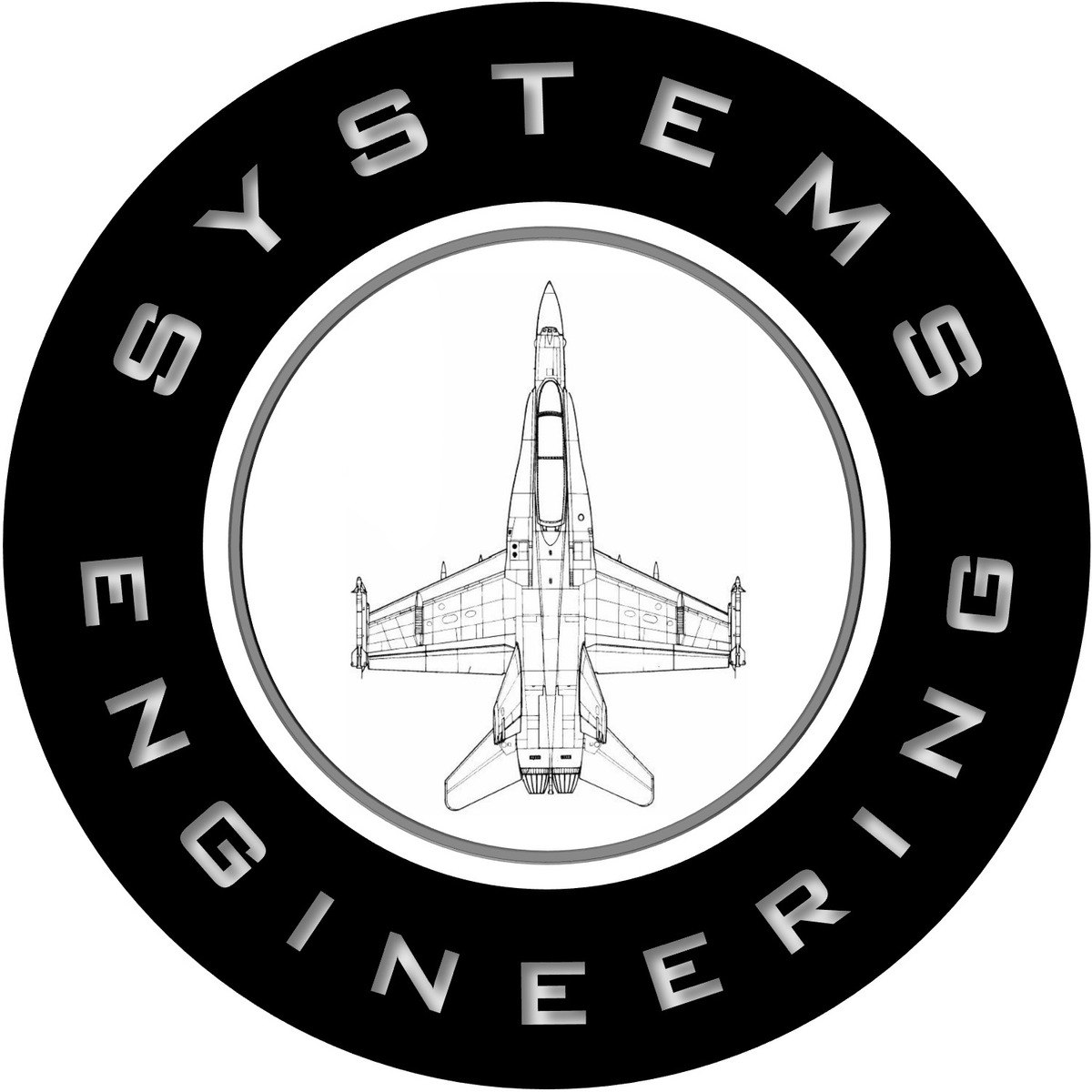Test Manager
Understanding the Role of a Test Manager
A Test Manager plays a crucial role in the software development lifecycle. They are the leaders responsible for ensuring the quality and reliability of software products before they reach end-users. At a high level, a Test Manager oversees the entire testing process, from planning and strategy development to team management and final reporting. They act as the primary advocate for quality within a development project.
Working as a Test Manager can be engaging for individuals who enjoy blending technical understanding with leadership and strategic thinking. You'll often find yourself coordinating diverse teams, solving complex problems related to software defects, and communicating critical information to stakeholders. The role offers a unique vantage point on the software development process, providing insights into both technical details and broader project goals.
Overview of the Test Manager Role
This section provides a foundational understanding of what a Test Manager does, where they work, and how their role compares to others in the quality assurance field.
What is a Test Manager?
A Test Manager is a professional responsible for defining and implementing the testing strategy for software projects. Their core purpose is to lead the quality assurance (QA) efforts, ensuring that software meets specified requirements, is free from critical defects, and provides a positive user experience. They manage resources, timelines, and the overall execution of testing activities.
The scope of their work involves understanding project requirements, identifying potential risks, designing comprehensive test plans, and coordinating the efforts of a testing team. They don't just manage tests; they manage the quality outlook of the entire product, acting as a critical checkpoint before release.
Effective Test Managers possess a blend of technical knowledge, project management skills, and strong leadership capabilities. They need to understand testing methodologies, automation tools, and the software development lifecycle (SDLC) while also being adept at communication and team motivation.
For those new to the field, understanding the fundamentals of software testing is paramount. These courses offer a solid introduction to the concepts and practices essential for anyone involved in quality assurance.
Foundational knowledge can also be gained through established texts in the field. These books provide comprehensive insights into the principles and practical aspects of software testing.
Where Do Test Managers Work?
Test Managers are employed across a wide range of industries where software development is critical. This includes technology companies (software houses, SaaS providers), financial services (banking, insurance), healthcare, e-commerce, telecommunications, gaming, and even government sectors.
Essentially, any organization that develops or relies heavily on proprietary software needs robust testing processes, creating demand for skilled Test Managers. The size of the organization can vary, from large multinational corporations with dedicated QA departments to smaller startups where the Test Manager might wear multiple hats.
The specific industry can influence the focus of the role. For example, a Test Manager in finance might prioritize security and regulatory compliance testing, while one in gaming might focus more on performance, usability, and compatibility testing across different platforms.
You can explore careers related to testing across various sectors on platforms like OpenCourser's Technology section.
Test Managers vs. Related Roles
The lines between quality assurance roles can sometimes blur. A Test Manager is typically a leadership position focused on strategy, planning, and team management. They oversee the entire testing effort for a project or product line.
A QA Lead often reports to the Test Manager and might lead a smaller team or focus on a specific area of testing within a larger project. They are more hands-on with test execution and daily team coordination compared to the strategic focus of a Test Manager.
A Test Automation Engineer specializes in designing, developing, and maintaining automated test scripts and frameworks. While a Test Manager understands automation strategy, the engineer implements it. Other related roles include:
Understanding these distinctions helps clarify the responsibilities and career path associated with becoming a Test Manager, which generally involves greater scope and leadership.
Global Demand and Trends
The demand for Test Managers remains steady, driven by the increasing complexity of software and the critical need for quality assurance in competitive markets. As businesses undergo digital transformation, the reliance on functional, secure, and user-friendly software grows, highlighting the importance of effective test management.
Emerging trends like Agile methodologies, DevOps practices, and the rise of Artificial Intelligence (AI) in testing are shaping the role. Test Managers need to adapt to faster release cycles, integrate testing seamlessly into development pipelines (CI/CD), and explore how AI can augment testing efforts.
While automation reduces the need for purely manual testing roles, the strategic oversight, risk assessment, and team leadership provided by Test Managers become even more valuable. According to some industry analyses, roles emphasizing management, strategy, and specialized testing skills are expected to remain relevant. Job outlook information can often be found through resources like the U.S. Bureau of Labor Statistics Occupational Outlook Handbook, although specific data for "Test Manager" might be grouped under broader categories like Computer and Information Systems Managers or Software Developers, Quality Assurance Analysts, and Testers.
Key Responsibilities of a Test Manager
A Test Manager juggles numerous responsibilities daily. This section details the core duties involved in guiding a software product's quality assurance process.
Planning and Overseeing Test Strategies
A primary responsibility is developing the overall test strategy for a project or product. This involves defining the scope of testing, objectives, methodologies, required resources (human and tools), and timelines. The Test Manager creates detailed test plans outlining what will be tested, how, when, and by whom.
They oversee the execution of these plans, ensuring that testing activities align with the strategy and project goals. This requires continuous monitoring of progress, adapting the plan as needed based on development changes or discovered issues, and ensuring adequate test coverage.
Effective planning also involves selecting appropriate testing methodologies (e.g., black-box, white-box, exploratory testing) and deciding on the balance between manual and automated testing efforts.
These books offer guidance on managing the testing process and defining effective strategies.
Team Leadership and Collaboration
Test Managers lead and mentor teams of QA testers, analysts, and automation engineers. This includes assigning tasks, providing guidance, fostering skill development, and managing team performance. They create a collaborative environment where team members can effectively identify and report defects.
Collaboration extends beyond the QA team. Test Managers work closely with developers, project managers, product owners, business analysts, and other stakeholders. Clear communication is vital for understanding requirements, reporting progress, discussing defects, and aligning testing efforts with overall project milestones.
Building strong working relationships across different functions is key to ensuring quality is integrated throughout the development lifecycle, not just checked at the end.
These courses focus on the leadership and management aspects crucial for a Test Manager role.
Understanding human dynamics in technical teams is also important, as highlighted in this classic text.
Risk Management and Defect Tracking
Identifying and managing risks related to software quality is a critical function. Test Managers assess potential risks early in the project (e.g., unclear requirements, complex integrations, new technologies) and develop mitigation strategies through targeted testing.
They oversee the defect management process, ensuring that bugs are accurately reported, prioritized, tracked, and resolved. This involves using bug tracking systems (like Jira or TestRail), defining severity and priority levels, and coordinating with development teams to ensure timely fixes.
Analyzing defect trends can also provide valuable feedback to improve development processes and prevent similar issues in the future.
This course specifically addresses project risk management, a core competency for Test Managers.
Understanding how to define and document requirements clearly is also key to preventing defects.
Reporting and Compliance
Test Managers are responsible for communicating the status of testing efforts and the overall quality of the software to stakeholders. This involves creating regular progress reports, test summary reports, and quality metrics dashboards.
These reports provide visibility into test coverage, defect densities, pass/fail rates, and outstanding risks. Clear and concise reporting helps stakeholders make informed decisions about product releases.
In regulated industries (like finance or healthcare), Test Managers also ensure that testing processes and documentation meet compliance requirements and industry standards. This may involve preparing documentation for audits and demonstrating adherence to specific quality protocols.
Essential Skills and Competencies
Becoming a successful Test Manager requires a diverse skill set, blending technical proficiency with strong interpersonal abilities. Continuous learning is also crucial in this evolving field.
Technical Skills
A solid understanding of the Software Development Life Cycle (SDLC) and various testing methodologies is fundamental. Test Managers should be familiar with different types of testing, such as functional, performance, security, usability, and regression testing.
Knowledge of test automation concepts, frameworks, and tools (e.g., Selenium, Cypress, Playwright) is increasingly important, even if they don't write code daily. Understanding automation strategy helps them guide the team effectively.
Familiarity with databases, APIs, and basic scripting or programming concepts can also be highly beneficial for understanding the systems under test and communicating with technical teams.
These courses delve into specific testing techniques and automation frameworks.
Soft Skills
Excellent communication skills are paramount. Test Managers must articulate complex technical issues clearly to both technical and non-technical audiences, negotiate priorities, and provide constructive feedback.
Leadership and team management skills are essential for motivating the QA team, resolving conflicts, and fostering a positive and productive work environment. Problem-solving abilities are needed to analyze defects, identify root causes, and devise effective testing solutions.
Attention to detail is critical for identifying subtle bugs and ensuring thorough test coverage. Strong organizational and time management skills are necessary to handle multiple tasks, manage deadlines, and keep testing efforts on track within the project schedule.
Certifications
While not always mandatory, professional certifications can validate knowledge and enhance career prospects. The most widely recognized certification body is the International Software Testing Qualifications Board (ISTQB).
Certifications like the ISTQB Certified Tester Foundation Level (CTFL) provide a solid baseline. More advanced ISTQB certifications (e.g., Test Manager, Test Analyst, Technical Test Analyst, Test Automation Engineer) demonstrate specialized expertise.
Project Management certifications, such as the Project Management Professional (PMP), can also be valuable, given the significant planning and management aspects of the Test Manager role.
This course specifically prepares learners for the foundational ISTQB certification.
Adaptability and Continuous Learning
The technology landscape is constantly changing. Test Managers must be adaptable and committed to continuous learning to stay current with new testing tools, techniques, development methodologies (like Agile and DevOps), and emerging technologies like AI and machine learning in testing.
This involves reading industry publications, attending conferences, participating in online forums, and pursuing ongoing training. Embracing change and proactively seeking knowledge are key traits for long-term success in this dynamic field.
Platforms like OpenCourser offer a vast catalog of courses to help professionals stay updated on the latest trends and technologies in software testing and related fields.
Tools and Technologies in Test Management
Effective Test Managers leverage various tools to streamline workflows, enhance collaboration, and improve testing efficiency. Familiarity with common tool categories is essential.
Test Management Software
These tools are central to organizing and tracking testing activities. They help manage test cases, test plans, test execution, and requirements traceability. Popular examples include Jira (often with plugins like Xray or Zephyr), TestRail, qTest, and Azure Test Plans (part of Azure DevOps).
These platforms provide a centralized repository for test artifacts, facilitate collaboration among team members, and offer reporting capabilities to track progress and quality metrics.
This course covers project management within the Azure DevOps ecosystem, including its testing tools.
Automation Tools
Test automation tools execute pre-scripted tests automatically, which is crucial for regression testing and speeding up feedback cycles, especially in Agile and DevOps environments. Widely used UI automation tools include Selenium, Cypress, Playwright, and Appium (for mobile).
API testing tools like Postman and RestAssured are also common. Test Managers need to understand the capabilities and limitations of these tools to make informed decisions about automation strategy and resource allocation.
These courses focus on popular automation tools and frameworks.
CI/CD Pipeline Integration
In modern development practices, testing is integrated directly into the Continuous Integration and Continuous Deployment (CI/CD) pipeline. Test Managers need to understand how testing fits into this automated workflow.
This involves collaborating with DevOps engineers to ensure automated tests run reliably as part of the build and deployment process. Tools like Jenkins, GitLab CI, GitHub Actions, and Azure Pipelines are commonly used to manage these workflows.
Understanding CI/CD helps Test Managers advocate for "shift-left" testing, where testing activities occur earlier and more frequently in the development cycle.
Data Analysis and Reporting Platforms
Test Managers use various tools to collect, analyze, and visualize testing data. This might include built-in reporting features of test management tools, business intelligence platforms like Power BI or Tableau, or even spreadsheets for simpler analysis.
Effective data analysis helps identify trends, pinpoint problematic areas in the software, measure test effectiveness, and provide clear, data-driven reports to stakeholders. The ability to interpret metrics and present insights is a valuable skill.
Formal Education Pathways
While practical experience is highly valued, a formal education can provide a strong foundation for a career in test management. Various academic routes can lead to this field.
Relevant Undergraduate Degrees
Degrees in Computer Science, Information Technology (IT), Software Engineering, or related engineering disciplines are common starting points. These programs typically provide foundational knowledge in programming, algorithms, data structures, software development methodologies, and database management, which are relevant to understanding the systems under test.
Some universities may offer specific courses or specializations in software quality assurance or testing within these broader degree programs. A technical background helps in understanding complex software and interacting effectively with development teams.
Explore relevant degree programs and foundational courses in Computer Science and Engineering on OpenCourser.
Graduate Programs and Specializations
For those seeking deeper expertise or leadership roles, a Master's degree in Software Engineering, Computer Science, or even Project Management can be beneficial. Some universities offer specialized graduate programs or certificates focusing specifically on Software Quality Assurance or Test Engineering.
An MBA (Master of Business Administration) might also be considered, particularly for those aspiring to senior leadership positions managing large QA departments or focusing on the business aspects of quality.
Graduate studies often provide opportunities for in-depth research and advanced coursework in areas like test automation, performance engineering, security testing, and quality management systems.
Research Areas in Academia
Academic research in software testing is an active field. Areas of focus include developing more effective testing techniques, improving test automation frameworks, applying Artificial Intelligence (AI) and Machine Learning (ML) to testing (e.g., automated test case generation, defect prediction), performance testing methodologies, security testing strategies, and testing complex systems like IoT or distributed systems.
PhD researchers contribute to the theoretical underpinnings and cutting-edge advancements in the field, often collaborating with industry partners.
Internships and Co-op Opportunities
Practical experience gained through internships or co-operative education programs is invaluable. These opportunities allow students to apply theoretical knowledge in real-world settings, work alongside experienced professionals, and gain exposure to industry tools and processes.
Internships can provide a significant advantage when seeking entry-level QA roles after graduation and serve as a stepping stone towards a Test Manager position. Building a network and gaining practical skills early on is highly recommended.
Online Learning and Professional Development
Beyond formal education, online learning offers flexible and accessible pathways to acquire and update the skills needed for a Test Manager career, especially for career changers or those looking to specialize.
Self-Paced Learning Paths
Online platforms provide numerous courses covering all aspects of software testing, from foundational concepts to advanced automation and management techniques. Learners can create personalized learning paths tailored to their specific goals and current skill level.
You can learn about test planning, different testing types (black-box, white-box, performance, security), test automation tools (Selenium, Cypress), Agile testing practices, and test management principles at your own pace.
Using resources like OpenCourser allows you to search and compare thousands of courses from various providers, helping you build a structured curriculum. Remember to check the Learner's Guide for tips on effective self-study.
These courses offer comprehensive overviews suitable for building foundational or advanced knowledge.
Portfolio Building through Projects
Theoretical knowledge gained from online courses is best reinforced through practical application. Contributing to open-source projects provides real-world testing experience and allows you to build a portfolio demonstrating your skills.
You can practice identifying bugs, writing test cases, implementing automated tests, and collaborating with developers in a public setting. Personal projects, such as building and testing your own simple application, can also serve as valuable portfolio pieces.
Documenting your contributions and projects clearly showcases your capabilities to potential employers, often more effectively than certificates alone.
Consider applying learned techniques from books like these to practical projects.
Microcredentials vs. Traditional Degrees
Online courses often offer certificates or microcredentials upon completion. While these may not carry the same weight as a traditional university degree, they demonstrate specific skills and a commitment to continuous learning, particularly in rapidly evolving technical areas like test automation tools or cloud technologies.
For career changers or those supplementing existing degrees, a portfolio of relevant projects combined with targeted microcredentials can be a powerful combination. The key is demonstrating practical ability alongside certified knowledge.
Focus on acquiring skills relevant to the job descriptions you're interested in, whether through formal degrees or focused online learning.
Balancing Online Learning with Hands-on Practice
Successfully leveraging online learning requires discipline and a focus on application. It's crucial to actively engage with the material, participate in exercises, and seek opportunities to apply newly learned concepts in practical scenarios.
Simply watching videos is insufficient. Allocate time for coding exercises (if learning automation), setting up testing environments, using test management tools, and analyzing sample applications. This active practice solidifies understanding and builds tangible skills.
Transitioning into a Test Manager role often requires proving not just knowledge, but also the ability to apply that knowledge effectively in a team setting.
These courses emphasize hands-on learning and practical application.
Career Progression and Opportunities
A career in test management offers various growth paths, both vertically into leadership and laterally into related fields. Understanding these trajectories helps in planning long-term career goals.
Entry-Level Roles
Most individuals don't start directly as Test Managers. Common entry points into the quality assurance field include roles like Junior QA Tester, Manual Tester, QA Analyst, or Junior Automation Engineer. These positions provide foundational experience in testing processes, tools, and collaboration within development teams.
Gaining experience in identifying and reporting defects, executing test cases, and perhaps contributing to test automation efforts builds the necessary groundwork for future leadership roles.
These introductory courses can help prepare individuals for entry-level QA positions.
Promotion Criteria and Timelines
Progression from an entry-level role to a Test Lead or Test Manager typically requires several years of experience (often 3-7+ years, depending on the individual and organization). Key factors influencing promotion include demonstrated technical expertise, strong understanding of testing methodologies, leadership potential, effective communication skills, and a proven ability to manage testing efforts for increasingly complex projects.
Showing initiative, mentoring junior team members, contributing to process improvements, and successfully delivering high-quality software are crucial. Certifications (like ISTQB Advanced Levels) can also support career advancement.
Timelines vary greatly based on company size, structure, individual performance, and available opportunities.
Lateral Moves
The skills and experience gained as a Test Manager open doors to other roles within the technology sector. Some may transition into Project Management or Program Management, leveraging their planning, risk management, and stakeholder communication skills.
Others might move into Product Management, using their deep understanding of product quality and user experience. Roles in DevOps, focusing on integrating quality into the CI/CD pipeline, or technical consulting are also possible avenues.
A background in test management provides a unique perspective that is valuable in many adjacent fields.
Leadership Pathways
Experienced Test Managers can advance to more senior leadership positions. This might include roles like Senior Test Manager, QA Director, Head of Quality Engineering, or even Vice President of Quality/Engineering.
These roles typically involve managing multiple teams or entire QA departments, setting the overall quality strategy for the organization, managing budgets, and influencing engineering practices at a higher level. Strong strategic thinking, business acumen, and executive communication skills become increasingly important.
Challenges Faced by Test Managers
While rewarding, the role of a Test Manager comes with its own set of challenges. Understanding these can help aspiring managers prepare and develop coping strategies.
Managing Tight Deadlines and Resources
Testing often occurs towards the end of the development cycle, making it susceptible to schedule pressure if earlier phases run late. Test Managers frequently face the challenge of ensuring thorough testing within compressed timelines and sometimes with limited resources (personnel, tools, test environments).
This requires excellent prioritization skills, effective risk assessment to focus efforts on critical areas, and strong negotiation skills to advocate for adequate time and resources.
The classic book "Lessons Learned in Software Testing" offers valuable insights into navigating common testing challenges.
Aligning QA with Agile/DevOps Shifts
The move towards faster, iterative development cycles in Agile and DevOps requires a significant shift in how testing is approached. Test Managers must adapt from traditional, phased testing models to continuous testing integrated throughout the development pipeline.
This involves fostering closer collaboration between testers and developers, promoting automation, advocating for quality ownership across the team, and implementing strategies like shift-left testing. Managing this cultural and process transformation can be challenging.
Ensuring Team Morale
Testing can be a high-pressure job, especially during critical pre-release phases. Test Managers are responsible for maintaining team morale, preventing burnout, and fostering a positive work environment.
This involves recognizing team contributions, providing opportunities for skill development, shielding the team from unreasonable pressure where possible, and celebrating successes. Effective leadership and communication are key to keeping the team motivated and engaged.
Adapting to AI/ML Disruption
Artificial Intelligence (AI) and Machine Learning (ML) are beginning to impact the testing landscape. AI-powered tools promise to assist with test case generation, optimize test execution, identify defects more efficiently, and even predict areas prone to bugs.
Test Managers face the challenge of understanding these emerging technologies, evaluating their potential benefits and risks, and strategically incorporating them into their testing processes. This requires continuous learning and a willingness to adapt established practices. Staying informed through industry resources like Gartner or Forrester can be beneficial.
Test Managers in Agile and DevOps Environments
The rise of Agile methodologies and DevOps culture has fundamentally reshaped the role and responsibilities of Test Managers and their teams.
Role Evolution in CI/CD Pipelines
In traditional models, testing was often a distinct phase near the end of development. In Agile and DevOps, testing is a continuous activity integrated throughout the CI/CD pipeline. The Test Manager's role evolves from gatekeeper to quality coach and strategist within this flow.
They focus on enabling the entire team (including developers) to contribute to quality, defining automation strategies that fit the pipeline, and ensuring rapid feedback loops. The emphasis shifts from finding bugs late to preventing them early.
Collaboration with DevOps Engineers
Close collaboration with DevOps engineers is crucial. Test Managers work with them to integrate automated tests (unit, integration, end-to-end) into the build and deployment processes, manage test environments, and monitor application performance and quality in production.
Understanding DevOps principles and tools helps Test Managers ensure that testing infrastructure is robust, scalable, and supports the goal of frequent, reliable releases.
Shift-Left Testing Strategies
Test Managers champion "shift-left" testing, which means involving testing activities earlier in the development lifecycle. This includes participating in requirements reviews, performing static analysis, encouraging developers to write unit tests, and implementing API and integration tests before the UI is fully developed.
The goal is to catch defects earlier when they are cheaper and easier to fix, rather than waiting for a dedicated testing phase. This requires a cultural shift towards shared quality ownership.
This course introduces agile project management concepts relevant to modern testing environments.
Metrics for Measuring Agile Testing Success
Traditional testing metrics may not be sufficient in Agile/DevOps. Test Managers focus on metrics that reflect speed, efficiency, and quality within the continuous delivery flow. Examples include lead time for changes, deployment frequency, change failure rate, mean time to recovery (MTTR), test automation coverage, and defect escape rates.
These metrics help assess the health of the CI/CD pipeline and the effectiveness of the integrated quality practices, providing data to guide ongoing improvements.
Frequently Asked Questions (FAQs)
Here are answers to some common questions about pursuing a career as a Test Manager.
Is a coding background mandatory?
While not always strictly mandatory, a basic understanding of programming concepts and scripting is highly advantageous, especially in environments with significant test automation. It helps in understanding the application under test, communicating effectively with developers, and making informed decisions about automation strategies. Many Test Managers evolve from technical testing roles, but strong management and process skills can sometimes compensate for less coding expertise, particularly if supported by technically proficient leads or engineers on the team.
How does the role differ in startups vs. enterprises?
In large enterprises, Test Managers often oversee larger teams, navigate more complex organizational structures and processes, and may focus on specific product lines or domains. There might be more established procedures and tooling. In startups, a Test Manager might have a broader scope, potentially covering all QA activities, setting up processes from scratch, being more hands-on with testing and tools, and working with fewer resources but potentially more agility.
Can someone transition from manual testing?
Yes, transitioning from a manual testing role to a Test Manager is a common career path. It typically involves gaining experience, developing leadership skills, learning about test strategy and planning, understanding automation principles (even if not coding extensively), and potentially pursuing relevant certifications like ISTQB. Demonstrating initiative, mentoring others, and taking on lead responsibilities within projects are key steps in this transition.
This course is designed to help testers transition into lead roles.
What industries offer the highest salaries?
Salaries for Test Managers can vary significantly based on location, experience, company size, and industry. Generally, industries with high demands for software reliability and complex systems, such as technology (especially major tech firms), finance, and sometimes specialized fields like healthcare technology or aerospace, may offer higher compensation packages. Consulting roles can also be lucrative. Salary comparison websites and industry reports can provide more specific geographical data.
How secure is this career amid AI adoption?
While AI is changing aspects of testing, the strategic oversight, risk assessment, planning, and human judgment provided by Test Managers remain critical. AI tools are more likely to augment rather than completely replace the role. Test Managers who adapt, understand how to leverage AI tools effectively, and focus on the strategic and leadership aspects of quality assurance are likely to find continued demand for their skills. The focus may shift more towards managing AI-driven testing processes and interpreting complex results.
Do Test Managers need MBA degrees for leadership roles?
An MBA is generally not a requirement for most Test Manager or even QA Director roles, especially those focused primarily on the technical and process aspects of quality. Strong technical foundations, extensive QA experience, leadership skills, and relevant certifications (like ISTQB Advanced Level Test Manager) are often more critical. However, an MBA can be beneficial for those aiming for very senior executive positions (e.g., VP level) where broader business acumen, financial management, and corporate strategy are more central to the role.
Conclusion
The role of a Test Manager is dynamic, challenging, and essential for delivering high-quality software. It requires a unique blend of technical understanding, strategic planning, leadership capability, and adaptability. Whether you are starting your career, considering a pivot, or looking to advance within the quality assurance field, developing the right skills and embracing continuous learning are key. With the increasing reliance on software across all industries, skilled Test Managers who can navigate complex projects and evolving technologies will continue to be highly valued professionals.






















